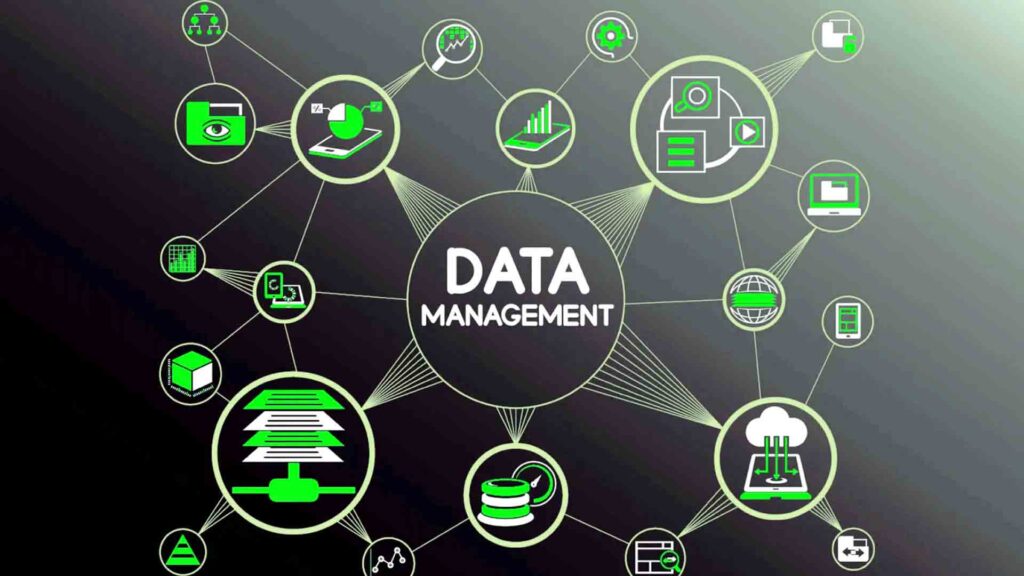Now Days businesses are drowning in information. Managing, securing, and analyzing this data can be a complex and overwhelming task, pulling your internal IT team away from core initiatives. Data Managed Services (DMS) offer a powerful solution, acting as your trusted partner to handle the intricacies of your data infrastructure, freeing you to focus on what matters most – growing your business.
Understanding Data Managed Services
Data managed services encompass a range of offerings aimed at optimizing data utilization, storage, security, and analysis. These services are designed to handle the complexities of modern data ecosystems, ensuring that businesses can extract actionable insights while maintaining the integrity and security of their data.
Data Storage and Accessibility
One of the key components of data managed services is data storage. These services provide scalable and secure storage solutions tailored to the specific needs of each organization. By leveraging cloud-based infrastructure and advanced storage technologies, businesses can ensure that their data is readily accessible whenever and wherever it is needed.
Data Security and Compliance
In an age where data breaches and cyber threats are prevalent, data security is paramount. DMS include robust security measures to protect sensitive information from unauthorized access, breaches, and other cyber threats. Additionally, these services help businesses maintain compliance with industry regulations and standards, reducing the risk of costly penalties and reputational damage.
Data Analysis and Insights
The true value of data lies in its ability to inform decision-making and drive business growth. Data managed services offer advanced data analysis capabilities, including predictive analytics, machine learning, and AI-driven insights. By harnessing the power of their data, businesses can uncover hidden patterns, identify opportunities, and make informed decisions that drive innovation and competitive advantage.
Benefits of Data Managed Services

Enhanced Operational Efficiency
By outsourcing data management to experienced professionals, businesses can streamline their operations and focus on their core competencies. Data managed services eliminate the need for costly infrastructure investments and internal resource allocation, allowing organizations to achieve greater agility and efficiency in their day-to-day operations.
Improved Decision-Making
It takes fast and accurate data access to make wise decisions. Data managed services provide businesses with the tools and insights they need to analyze data effectively, identify trends, and anticipate market changes. With real-time visibility into key metrics and performance indicators, decision-makers can respond swiftly to emerging opportunities and challenges, gaining a competitive edge in their respective industries.
Scalability and Flexibility
Businesses’ requirements for data management change and expand along with them. Data managed services offer scalability and flexibility, allowing organizations to adapt to changing requirements and demands. Whether scaling up to accommodate growth or scaling down to optimize costs, businesses can rely on data managed services to provide the agility and agility needed to stay ahead in today’s dynamic marketplace.
Choosing the Right Managed Data Services Provider
When selecting a managed data services provider, it’s essential to consider factors such as experience, expertise, and reputation. Look for a provider that offers a comprehensive suite of services tailored to your specific needs and industry requirements. Additionally, seek out providers with a proven track record of success and a commitment to customer satisfaction.
Key Considerations
Experience and Expertise: Choose a provider with extensive experience and expertise in data management and related technologies.
Scalability: Ensure that the provider can scale their services to accommodate your business’s growth and evolving needs.
Security and Compliance: Verify that the provider adheres to stringent security protocols and compliance standards to protect your data and mitigate risk.
Support and Service Level Agreements (SLAs): Look for providers that offer responsive support and robust SLAs to ensure uptime and reliability.
Components of Data Management Services
Data Storage: Effective storage solutions tailored to the specific needs of businesses.
Data Backup and Recovery: Robust backup systems to prevent data loss and ensure business continuity.
Data Security: Advanced security measures to protect sensitive data from unauthorized access and cyber threats.
Data Monitoring and Reporting: Continuous monitoring of data systems and comprehensive reporting for insights and decision-making.
Common Challenges in Data Management
Data Volume: Managing and analyzing large volumes of data generated from various sources.
Data Quality: Ensuring the accuracy, consistency, and reliability of data for meaningful insights.
Compliance and Regulations: Navigating complex regulatory requirements and ensuring compliance with data protection laws.
FAQs
What types of businesses can benefit from data managed services?
Answer: Data managed services are beneficial for businesses of all sizes, from startups to large corporations, across various industries.
How do data managed services ensure data security?
Answer: Data managed service providers employ advanced security measures, including encryption, access controls, and regular audits, to protect sensitive information from unauthorized access and cyber threats.
Can data managed services help with regulatory compliance?
Answer: Yes, data managed service providers ensure compliance with relevant regulations and standards, such as GDPR, HIPAA, and PCI DSS, to help businesses meet their legal obligations.
What is the role of artificial intelligence in data managed services?
Answer: Artificial intelligence is increasingly being integrated into data managed services to automate tasks, enhance analytics capabilities, and improve decision-making processes.
How scalable are data managed services for growing businesses?
Answer: Data managed services offer scalable solutions that can easily accommodate the evolving needs and growth of businesses, ensuring flexibility and efficiency.
Final Wording
Data Management Services offer a powerful solution for businesses looking to optimize their operations, unlock insights, and drive growth. By outsourcing data management to experienced professionals, organizations can enhance efficiency, improve decision-making, and achieve greater agility in today’s competitive marketplace. When choosing a data managed services provider, be sure to consider factors such as experience, expertise, and scalability to ensure a seamless and successful partnership.




